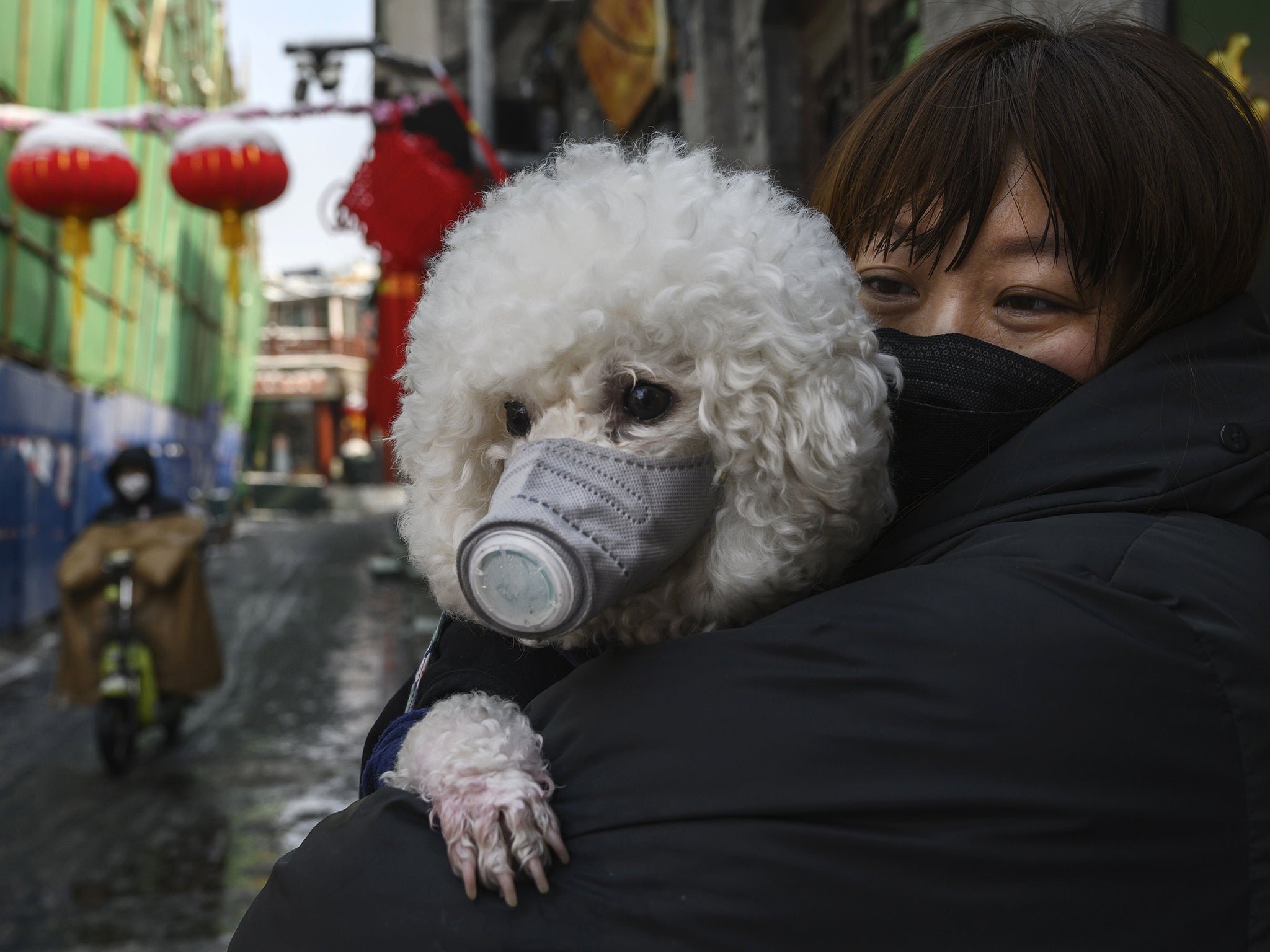This website uses cookies so that we can provide you with the best user experience possible. Cookie information is stored in your browser and performs functions such as recognising you when you return to our website and helping our team to understand which sections of the website you find most interesting and useful.

A pet dog in Hong Kong has tested ‘weak positive‘ for coronavirus and has been quarantined, it was announced on Thursday.
The Agriculture, Fisheries and Conservation Department (AFCD) in Hong Kong confirmed that repeated tests suggest the dog in question has a “low-level” of the virus and that it is likely to be the case of human-to-animal transmission.
The dog, a Pomeranian, has not yet shown any symptoms for the illness but its owner was confirmed as being infected with Covid-19.
The number of confirmed cases in the UK has risen to 87, with over 95,300 global cases reported and more than 3,200 deaths.
Now pet owners are becoming increasingly concerned they could catch the deadly disease from their animals - but is that scientifically possible?
Can I catch coronavirus from my pet?
Several global health organisations have issued advisories saying there is not yet any evidence that pet animals can spread coronavirus or indeed be infected with it in the same way as humans.
“Therefore, there is no justification in taking measures against companion animals which may compromise their welfare,” the World Organisation for Animal Health has said.
The Centers for Disease Control and Prevention concurred that “there is no reason to think that any animals including pets in the United States might be a source of infection with this new coronavirus”.
Meanwhile, the World Health Organisation states: “At present, there is no evidence that companion animals/pets such as dogs or cats can be infected with the new coronavirus."
Raymond R.R. Rowland, a veterinarian who specialises in swine viruses at Kansas State University, said that “weak positives” frequently show up in testing pigs, where a farmer’s livelihood can be at stake.
Created with Sketch.
Created with Sketch.
1/11 Ben Gurion International airport, Israel
Reuters
2/11 Daxing International Airport, Beijing
AFP via Getty
3/11 Taoyuan International Airport, Taiwan
EPA
4/11 Noi Bai International Airport, Vietnam
AFP via Getty
5/11 Haneda Airport, Tokyo
Reuters
6/11 Changsha Huanghua International Airport, China
Reuters
7/11 Shanghai Pudong Airport in Shanghai, China
EPA
8/11 Daxing International Airport, Beijing
AFP via Getty
9/11 Haneda Airport, Tokyo
Reuters
10/11 Shanghai Pudong Airport in Shanghai, China
EPA
11/11 Noi Bai International Airport, Vietnam
AFP via Getty
1/11 Ben Gurion International airport, Israel
Reuters
2/11 Daxing International Airport, Beijing
AFP via Getty
3/11 Taoyuan International Airport, Taiwan
EPA
4/11 Noi Bai International Airport, Vietnam
AFP via Getty
5/11 Haneda Airport, Tokyo
Reuters
6/11 Changsha Huanghua International Airport, China
Reuters
7/11 Shanghai Pudong Airport in Shanghai, China
EPA
8/11 Daxing International Airport, Beijing
AFP via Getty
9/11 Haneda Airport, Tokyo
Reuters
10/11 Shanghai Pudong Airport in Shanghai, China
EPA
11/11 Noi Bai International Airport, Vietnam
AFP via Getty
“I’ll tell you what I tell them,” he told The New York Times. “Wait and see.”
Even if the Pomeranian has a low-level infection, he said: “that doesn’t say the animal is sufficiently infected that it can spread the virus.”
The dog could simply be a host for the illness that neither becomes unwell or infects other people or animals.
Should I change my behaviour with my pet?
The World Health Organisation says: "It is always a good idea to wash your hands with soap and water after contact with pets.
“This protects you against various common bacteria such as E.coli and Salmonella that can pass between pets and humans.”
To protect yourself from catching coronavirus, the WHO advises the following:
- Cover your mouth and nose while sneezing, with a tissue or your elbow
- Put the tissue straight into a closed bin
- Wash your hands afterwards, and then frequently, with soap or sanitiser
- Keep your distance from people who are coughing and sneezing (at least one metre)
You can read more about the WHO’s advice on coronavirus here.



 Africana55 Radio
Africana55 Radio 

